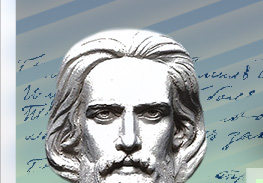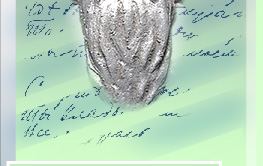November 29. 2019 20:59:32



|
|
|
|
|
|
||
Brief history
For many years theology in Russia was officially forbidden, with only two Theological Academies, one in Moscow, the other in Leningrad (St. Petersburg). In these academies at that time, it was impossible to talk openly about science and theology because they were subject to Communist censorship. At the same time, the problems of science and theology were discussed in some illegal circles. Philosophy was also under censored at the faculties of philosophy in the universities and some institutes. Philosophy then was not philosophy in the academic sense, it was ideology that was called “Marxist-Leninist philosophy”. Also, there were so called methodological seminars in all academic institutes whose aim was to generate propaganda for Marxist philosophy.
But alongside such official “philosophy” there were also unofficial meetings where the problems of science, philosophy, and theology were discussed. In Moscow the religious-philosophical meetings were held in private apartments and organized by Fr Alexander Men. In Leningrad for many years a religious circle of people met at the apartment of Elena Ivanovna Kazimirtchak-Polonskaya, a professor of astronomy, who later became an Orthodox nun. These gatherings were blessed by Fr Vasily Lesniak. Among the members of this circle there were many scientists: mathematicians, physicists, astronomers, humanitarian scientists, writers, and priests of the Russian Orthodox Church. One of the former participants is a professor of physics, S. Sazhin, who is now working in Brighton; another, Prof. A. Berezin, is in Canada. It was a sort of illegal Russian society for studying science and theology.
When the Communist regime was in crisis in the late 80s, other newly legalized philosophical and theological circles began to arise. In November 1991 a crucial event took place at the St. Petersburg Theological Academy: the “International Conference on the Problems of Science, Philosophy and Theology”. At that time, one of its participants, a professor of astronomy at Pulkovo Observatory, Dr. Sergei Grib, was trying to organize a St. Petersburg religious-philosophical society. Dr. Grib was well acquainted with Russian philosophy and Orthodox spirituality since his youth. He knew the famous Russian elder, Simeon of Pechory. For more than twenty years he was a friend of Fr Alexander Men, who was killed in September 1990. Dr. Grib had been persecuted for his religious beliefs since his youth. He was a principal organizer of the above-mentioned illegal religious-philosophical meetings in Leningrad in the early 70s and took an active part in them.
In February 1992 the Soloviev Society was founded, although the official registration took place in June 1993. The name of the Society was chosen in honor of Vladimir Soloviev, one of the founders of Russian philosophy and the person who inspired the Russian religious and cultural renaissance at the beginning of the 20th century. Following the example of Soloviev the Society tries to revive various aspects of the Eastern Orthodox Christian Tradition and to be open to all of the good ideas of Western religious and philosophical thought as well. The intention of the Society is to continue the activity of the earlier religious-philosophical society, that was shut down by the Communists in St. Petersburg after the October Revolution of 1917.
The Soloviev Society is a voluntary, nonprofit society. It currently has about 60 participants. The president of the Society is Dr. Grib. The board of the Society holds meetings, conferences, and workshops, and promotes publications connected with Russian religious philosophy, problems of dialogue between science and theology, philosophical ideas in teaching, and the practice of Eastern Orthodox Christianity. The main goals of the Society are to connect religious and scientific ideas and to be free in defending the Truth by faith and reason, similar to many Christian religious philosophers. The Society has almost no financial support, but has succeeded in holding three international conferences and some international seminars.
The first major event of the Society was the organization of the international conference, "The Renewal of Russian Religious-Philosophical Thought". It took place in March 1993 in the main hall of the St. Petersburg Orthodox Theological Academy. It was blessed by Metropolitan Ioann. Archbishop Mikhail (Mudiugin), a professor at the St. Petersburg Theological Academy also blessed the conference and presented a paper promoting Soloviev. Included among the main papers presented were: "The Lessons of Russian Religious philosophy," by Dr. Sergei Grib. At the seminar, "The Problems of Science and Theology within the Framework of Orthodox and Western Christian Traditions," the famous cosmologist Dr. A. Grib (St. Petersburg Friedman Physics Laboratory) presented a paper, "In Search of Ultimate Reality: The Problem of Pan-Unity in Russian Philosophy and Modern Physics." Fr Kirill Kopeikin, a member of the Soloviev Society, presented his paper, "Faith and Knowledge: 19th and 20th Centuries". Dr. Sergei Grib also presented, "Science and Theology: Boundaries, Antinomies and Docta Ignorantia." Dr. T. Soidla (St. Petersburg Institute of Citology) presented, "Biological Texts and Spiritual Values". There were also two lectures. One by Fr Christian Hoeg (Copenhagen, Denmark), "Rediscovering Sergei Bulgakov" and another by Prof. W. Dietrich (Marburg, Germany), "The Universalism of Russian Philosophy". Unfortunately, some foreign participants didn't come because they were afraid of the political instability in Russia at the time. The conference finished with a round table discussion. The proceedings of the conference were published in September 1993.
On May 14-15, 1994, the Society organized an international philosophical workshop, "Science, Theology, Religious Philosophy and Modern Times". Among its participants were Fr. Richard Chemus (a Catholic priest from Rome, now rector of the Russicum), and Dr. Mikelina Tenace (the author of a book about Soloviev). The participants gave papers on the contribution of Russian philosophy to the development of western philosophy. Archbishop Mikhail became an honorary member of the Society.
In 1994 the Soloviev Societies in Paris and Geneva convened a free association with the Soloviev Society in St. Petersburg. As a result of this association, the conference entitled, "Christianity and Russian Religious Philosophy", was held on September 22-23, 1995 at the St. Petersburg Theological Academy and St. Petersburg State University. It was blessed by Archbishop Mikhail. The first seminar of this conference, "The Christian Roots of Russian Religious Philosophy" was given by Dr. Sergei Grib, who spoke about the value of Russian religious philosophy for modern times. A guest at the conference, Maryse Dennes, from Bordeaux, France, pointed out an essential characteristic of Russian religious philosophy: looking for the balance between its openness to the world and its faithfulness to Orthodox truth. At the second seminar, "Church and State," Prof. Patrick de Laubier from Geneva and Bernard Marchadier, president of the Soloviev Society in Paris, reviewed some articles. At the third seminar, Fr Kirill Kopeikin gave a paper, "Is There a Real Crisis in Science, or is it Only a Temporary Phenomenon Reflected in the Modern State of Civilization?" The Western participants reacted strongly to the point of view of Dr. Sergei Grib, namely that the conflict between science and theology was more a phenomenon found in the western, Catholic world than in the Eastern Orthodox one. At the end of the conference there was an evening gathering in memory of Soloviev.
In 1996-97 there were regular meetings at St. Catherine Church. In the winter of 1997 there was a meeting in honor of the priest and philosopher, Fr. Vladimir Kamensky, who died in 1969. After the October Revolution he became a member of the famous Russian philosopher N. Lossky’s philosophical seminar. At the end of his life he served as confessor at the Leningrad Theological Academy.
In the spring, a professor from St. Petersburg State University and a member of the Society's Council and ESSSAT (European Society for the Study of Science and Theology), L. Kaidanov, presented a paper on biological evolution and the Christian approach to it. A famous biologist and an author of the book on genetics, he unfortunately died in January 1998. From February to the end of June of 1997, Sergei Grib presented the Templeton Lectures in astrophysics and Russian religious philosophy at the Academy of Arts. He received an award from the John Templeton Foundation, for this course, the only one from Russia at that year.
On October 10-11, 1997, a workshop was held, "The Ontological Problems of Modern Astronomy and Fundamental Science,” dedicated to the memory of the astronomer and Orthodox nun, Elena Kazimirtchak-Polonskaya. For many years, she took part in clandestine home seminars on science and theology and is now buried in the cemetery of the Pulkovo Astronomical Observatory. On October 10, the first day, the workshop was held at the Central Astronomical Observatory (Pulkovo). On the second day, it took place in the hall of St. Catherine’s Church. Two Orthodox priests gave papers on the first day and the Catholic priest and writer, Fr Francois Brune, gave his paper on the second day. The president of the ESSSAT, Dr. Ulf Goerman, and five ESSSAT members also took part in the workshop and gave papers. There were 15 papers presented, and memorial speeches delivered by Dr. Sergei Grib and Fr. Vitaly Golovatenko (St. Petersburg Conservatory). A Christian service was performed near the grave of the nun, Sr. Elena. Dr. A. Grib spoke about the anthropic principle in cosmology, and Dr. Yu. Vladimirov (Moscow State University, an organizer of scientific-philosophical seminars there), spoke about fundamental physics, philosophy, and religion.
Unfortunately, on the evening of the first day, the chairman of the committee, Dr. Sergei Grib was attacked by unknown assailants and beaten. All papers, documents, and some money was stolen with his briefcase. He lost his memory for two weeks and spent 40 days in the hospital. The reason for this attack is unknown, though there are some well-grounded theories.
In 1998 three members of the Soloviev Society, (Dr. Sergei Grib, Dr. A. Grib, and Dr. M. Prokopenko, took part in the ESSSAT conference in England concerning the role of person in science and theology, where they presented their papers. In 1998 there were also five seminars (the first and the second held at St. Catherine’s Church, the others at the musical college), and two private meetings held at the apartment of L. Shutenkova, a member of the Society. Three of the five workshops were mostly organizational and included open discussions. Two seminars were dedicated to Nikolai Berdyaev, one of the greatest Russian philosophers. On March 22 (in memory of the 50th anniversary of Berdyaev's death) Dr. Sergei Grib read his article, "Longing for the Trancendental," and then some participants shared their own feelings about Berdyaev's philosophy. On November 27 Hans Gunnar Aden from Sweden gave his paper, "The Actuality of N. Berdyaev's philosophy," which included his own thoughts on Berdyaev and the meaning of his philosophy for the West. At the last seminar in 1998 "About the Sense of Being,” held on December 26, Dr. Sergei Grib and some participants spoke about their own spiritual experiences and vision of the sense of Being, followed by a very long discussion.
This discussion turned out to be extremely heated. It revealed a long-standing argument between two viewpoints of the meaning of artistic and philosophical work: of those who deny modernism and regard it as atheism and those who consider modern thinking to be much more profound and essential than it seems at first sight. The dispute about the problem of the postmodern situation and man, who is lost, divided, and two-faced, brought to an important conclusion the argumentation concerning the antinomic substance of Being.
The first seminar in 1999 was held on January 29th. The discussion about the meaning of our own spiritual experience continued and revealed many interesting aspects of people's vision of the sense of Being. In March, two seminars were held. On March 12 the dispute about the sense of Being continued. On March 18 Professor of the St. Petersburg Institute of Ethnography A. I. Rodionov, gave a paper about Islam, its history and modern state. On May 26 the meeting began with a discussion about many aspects of Russian philosophy, followed by a presentation of the Society's former member, F.Kostenko, about his participation in the international conference, "Religion and Science: Tension, Accommodation and Engagement" in the United States in May.
In the season 1999-2000, four seminars were held, mostly debates. On March 24, the director of the European Training Center in Helsinki, A. Havard, gave a report on the role of Christianity in modern Europe. In April, 2000 four members of the Society (A. Grib, M. Prokopenko, A. Krasilshchikov and F. Kostenko) took part in the VIII ESSSAT meeting in Lyon, France and presented papers.
The first seminar of the 2000-2001 season was held on October 20. Some plans were discussed, especially about the meeting in memory of Soloviev. A. Krasilshchikov gave a report about his participation at the conference in memory of V. Soloviev, which was held in August 2000 in Moscow and sponsored by the Transnational Vladimir Soloviev Society. The next meeting was held in December. American Professor Robert A. Slesinski gave his paper there.


